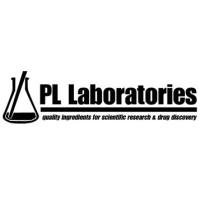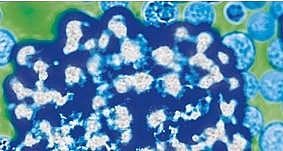【共享】2014年最新核心杂志调节性T细胞相关文献
丁香园论坛
756
1The role of T-cell receptor recognition of peptide:MHC complexes in the formation and activity of Foxp3(+) regulatory T cells.
2Regulatory cells in health and disease.
3Homeostasis and function of regulatory T cells (Tregs) in vivo: lessons from TCR-transgenic Tregs.
4Regulatory T-cell homeostasis: steadystate maintenance and modulation during inflammation.
5tTregs, pTregs, and iTregs: similarities and differences.
6The importance of regulatory T-cell heterogeneity in maintaining self-tolerance.
7Treg functional stability and its responsiveness to the microenvironment.
8Functional dynamics of Foxp3(+) regulatory T cells in mice and humans.
9Lineage stability and phenotypic plasticity of Foxp3(+) regulatory T cells.
10Once a Treg, always a Treg?
11Genetic and epigenetic basis of Treg cell development and function: from a FoxP3-centered view to an epigenome-defined view of natural Treg cells.
12Regulatory T cells in autoimmune neuroinflammation.
13Shaping the repertoire of tumor-infiltrating effector and regulatory T cells.
14control of regulatory T cell development by the transcription factor Foxp3.
15Cutting Edge: Depletion of CD4+CD25+Regulatory T Cells Is Necessary, But Not Sufficient, for
Induction of Organ-Specific Autoimmune Disease.
2Regulatory cells in health and disease.
3Homeostasis and function of regulatory T cells (Tregs) in vivo: lessons from TCR-transgenic Tregs.
4Regulatory T-cell homeostasis: steadystate maintenance and modulation during inflammation.
5tTregs, pTregs, and iTregs: similarities and differences.
6The importance of regulatory T-cell heterogeneity in maintaining self-tolerance.
7Treg functional stability and its responsiveness to the microenvironment.
8Functional dynamics of Foxp3(+) regulatory T cells in mice and humans.
9Lineage stability and phenotypic plasticity of Foxp3(+) regulatory T cells.
10Once a Treg, always a Treg?
11Genetic and epigenetic basis of Treg cell development and function: from a FoxP3-centered view to an epigenome-defined view of natural Treg cells.
12Regulatory T cells in autoimmune neuroinflammation.
13Shaping the repertoire of tumor-infiltrating effector and regulatory T cells.
14control of regulatory T cell development by the transcription factor Foxp3.
15Cutting Edge: Depletion of CD4+CD25+Regulatory T Cells Is Necessary, But Not Sufficient, for
Induction of Organ-Specific Autoimmune Disease.









